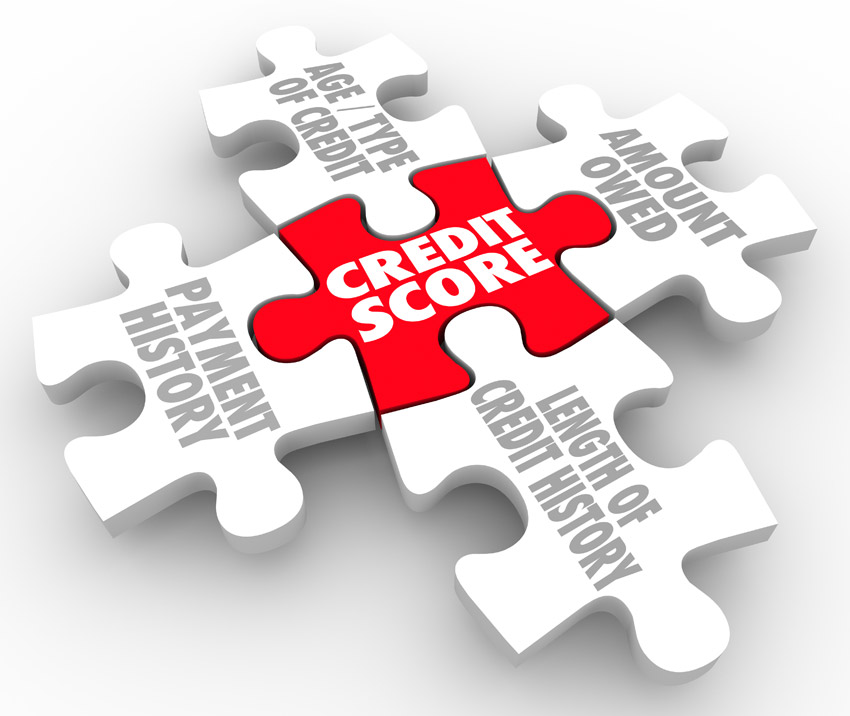You might have heard that you can only qualify for a mortgage if you have a certain Equifax score. Is that true? Are there any housing loans for those with bad credit?
Qualifying for a mortgage is a complicated process. It will involve the mortgage lender looking up your credit rating. Discover how Equifax scores can affect your qualification amounts and interest rates when you apply for a mortgage.
What Credit Agencies Know
 Have you ever grabbed a cookie from a cookie jar and wondered if your mother noticed? Have you ever missed a credit card payment? Just like your mother, the banks know.
Have you ever grabbed a cookie from a cookie jar and wondered if your mother noticed? Have you ever missed a credit card payment? Just like your mother, the banks know.
Credit Secret 1: Lenders share your financial data.
If you read the fine print on your financial agreements, you are allowing banks to access your financial data. They not only look at your information but share it with one another. If you did not repay one loan, the other lenders know.
It doesn’t matter whether it was a credit union, multinational bank or mortgage broker, the financial industry shares your records with one another. They do this in order to protect themselves.
Mortgage Qualification & Rates
Your credit rating will impact both your qualification and rates.
It will determine whether the mortgage lender deems you to be a good risk. The broker will use your credit history as a risk assessment tool.
And, if you do qualify, then the credit rating will be used to calculate interest rates. Those with good credit will receive lower rates. Those with bad credit will receive higher rates.
Credit Secret 2: Scores can be a little counter-intuitive.
Credit ratings have their own measurement guidelines that might not make sense to the common man. Before you take out any loan, you have no credit. Sometimes, when you try to fix your credit, you only end up worsening your score.
A good example is paying off your oldest credit card. If you have had a large credit card debt for years and decided to finally pay it off and cut up the plastic card, it should be a good thing, right? You lower your debt.
Not so with the modern banking debt system. They have something called your “available credit.” By cutting up your credit card, you lower your overall available debt and might worsen your credit rating.
Although some of the credit rules are counter-intuitive, you can still fix bad credit. Though, you must be very careful and know what you are doing.
Five Credit Rating Criteria
The financial industry has created your credit rating to gauge your creditworthiness or financial well-being. It measures how you have handled debt. These are the five factors that go into your Equifax credit rating:
- Oldest
- History
- Type
- Capacity
- Recent
Each of these factors is like a magnifying glass into your financial psyche. Lenders believe this score measures your debt management skills.
Oldest
You might not remember your first credit card, but the banks do. They keep track of the first time you took out a loan.
History
Your credit history will include missed payments, late payments and court judgments.
Type
Do you have credit card, automobile, student or housing loans? A variety of loan types is preferable.
Capacity
What percentage of your “available credit” is being used? This might also be called your “credit utilization rate.” If your credit card has a maximum amount allowed of $10,000 and you are using $2,000, then your credit availability is 80%.
Experts suggest that keeping at least 33% available credit is wise.
Recent
When was the last time you applied for a loan? If you apply for too many loans simultaneously, lenders think you are desperate. They will downgrade your credit score.
Credit & Debt Synergy
Before you contemplate a mortgage application, you should get your credit in good shape. You can get a free annual credit report (a self-inquiry will not lower your score). See what is listed and whether it is accurate.
Although the financial institutions know a lot about you, they do make some mistakes. It might be a typo or case of mistaken identity. Someone else’s information might have been improperly listed on your credit report. You should try to correct any errors more than 6 months before you apply for a mortgage.
Credit Secret 3: Credit is a promise to repay your debt obligations, on time.
Credit and debt go hand in hand. Accountants understand this when they make two column headings: “Assets” and “Liabilities.” Both sides must be balanced.
The same is true for credit and debt. When you receive a mortgage for X amount it is credit; but the debt amount that you repay might be X plus the interest rate, closing costs and other fees.
And, debt doesn’t simply vanish, if you miss a payment. You have signed a contract, and the lender expects you to repay your debt obligation. Debt must be repaid.
Bad Credit Mortgage
Having a bad credit score can lower your ability to receive financing. Some brokers will have a hard and fast score below which they will not lend. Experts recommend that you always pay your bills on time, take out at least two lines of credit and establish a 2-year credit history. If you still have bad credit, there are debt repair services that can help.
More Brokers = More Credit Qualification Ranges
If the Canadian mortgage market only had public institutions, then some of the credit rules might be chiselled in stone. But, thankfully that is not the case. Advantage Mortgage has access to multiple mortgage lenders in Alberta who offer different qualification rules for different credit ratings.
Credit Secret 4: Multiple brokers accept different scores for credit.
Each private broker has his own risk tolerance. You have more options at Advantage Mortgage.
Credit Range Advantage
Qualifying for a mortgage is a major life decision. After you get this loan, you will have an important debt to repay. With a higher credit rating, you can lower the overall long-term costs.
Moreover, you want to prepare years in advance, if possible. It might take a little time to iron out any bad credit problems. When you are ready, you can contact Advantage Mortgage.
We have numerous lenders available who have different credit ranges for qualification purposes. Some of our mortgage lenders specialize in bad credit problems. They might have a loan package that you can handle.
